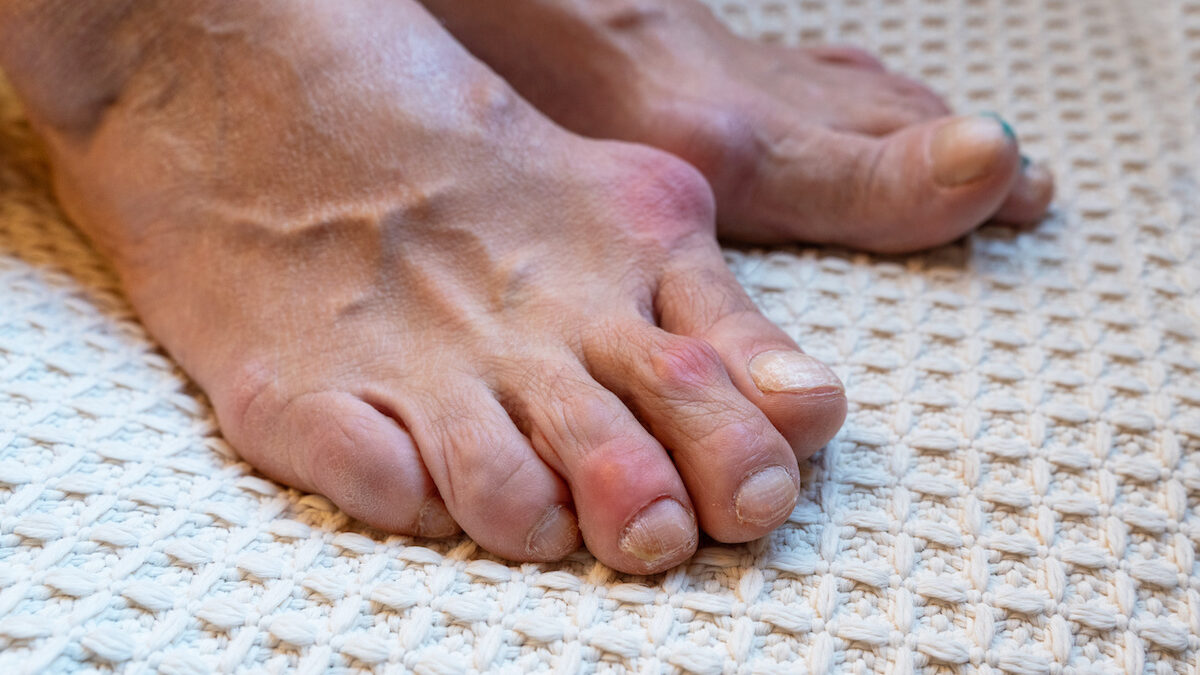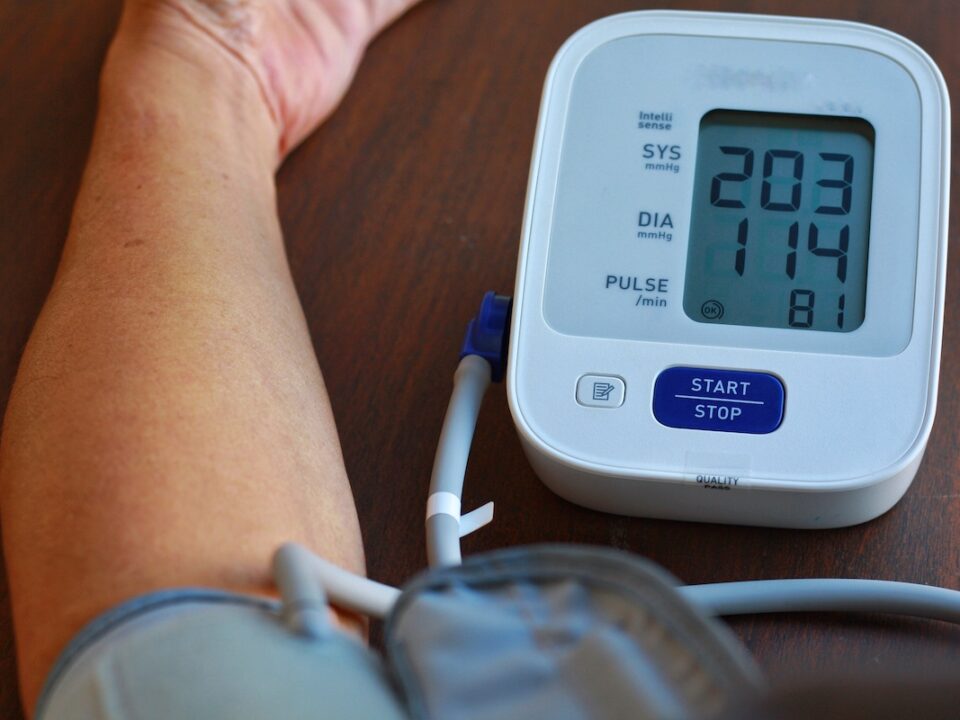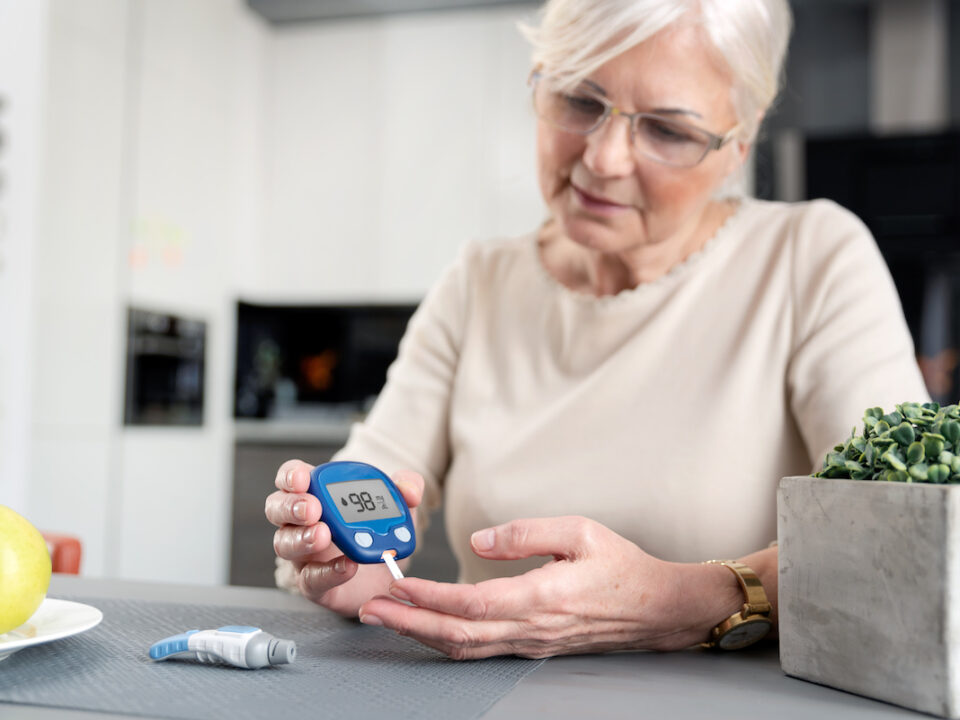The Guide to Gout and What You Can do About it

Do you suffer from gout attacks? Gout is a painful and sometimes debilitating form of arthritis that can strike at the worst possible times. More common in men than women, about 4% of the population has a problem with gout. If you are one of the millions who are awakened at night by nasty flare-ups, know that you aren’t alone.
Gout can be an expensive and time-consuming struggle. This article will explore some tips about how to identify it, what to do during attacks and how to avoid future flare-ups.
What is Gout?
Gout, is a type of inflammatory arthritis that occurs when there are high levels of uric acid in the blood. Uric acid is a normal waste product that the body creates when it breaks down purines.
Purines are found in animal protein, so diets high in these foods can lead to excess uric acid and be a major factor in triggering gouty attacks. If the body does not break down enough uric acid, or if it excretes too much of it, the uric acid will collect in the joints and cause a gout attack. Patients who suffer from this can experience sudden, excruciating pain and swelling that can strike at any time.
In a flare-up, crystals form in and around the joints and other soft tissues. These can lead to inflammation, pain, swelling, and redness. Symptoms often resemble those of other types of arthritis, such as rheumatoid arthritis.
What are the Symptoms?
Once you’ve experienced a flare-up, you’ll probably never forget it, but if you’ve never had gout, you might be wondering exactly what it feels like. Gout is often described as an excruciating combination of pain, redness, and heat.
It can affect one joint at a time, or it can affect multiple joints at once and you may have difficulty walking or doing basic tasks. An attack typically peaks after the first 12-24 hours, but symptoms could persist for up to two weeks if left untreated.
People can experience gout in many different ways with a variety of symptoms. The most common sign of an attack is intense pain. This pain is often in the big toe, but can also affect other joints such as the ankles, knees, elbows, wrists, fingers, and hips.
The attack is often described as stabbing pain accompanied by pressure. Other symptoms include:
- Redness
- Severe pain
- Swelling in Joint
- Attacks that come on suddenly, without warning, usually at night
If you may wake up in the middle of the night with extremely swollen joints and significant pain you may be experiencing a gout attack.
Who is at Risk?
Are you at risk of gout attacks? Gout attacks can happen to anybody, regardless of gender, ethnicity, age, or any other risk factor. Gout is an equal opportunity joint disease!
Even though anyone can get gout, some people are more susceptible to attacks. Consider the following questions to assess your risk of a gout attack:
- Do you have a history of high cholesterol?
- Do you have a chronic condition, such as high blood pressure, diabetes, or kidney disease?
- Do you take cholesterol-lowering drugs?
- Do you take aspirin, Motrin, Advil, Aleve, or any other NSAIDs on a regular basis?
- Are you overweight?
- Do you have a family history?
Additionally, you are at greater risk if you smoke or drink alcohol excessively. Gout is rare in children, but it can happen.
How do You Treat it?
Although there aren’t any cures for gout, the pain and swelling are treatable by taking the right medication, following an aggressive gout diet, and making some simple lifestyle changes.
One of the first steps is to eliminate purine-rich foods from your diet, which will cause and aggravate gout attacks. Purines are found naturally in foods such as shellfish, organ meats, and red meat.
Below are the most important dietary suggestions for your gout diet:
- Reduce or eliminate foods that are high in purines and sugar.
- Avoid drinking alcohol.
- Drink six to eight glasses of water each day.
- Cut back on salt.
- Eat fresh fruits and vegetables.
- Eliminate refined foods.
- Consume whole grains and complex carbohydrates.
Begin following the gout diet immediately when the pain starts to reduce the symptoms. Once the pain lessens or goes away try adding your favorite items back into your diet but proceed with caution. If the gout returns, then you know that it is caused by certain foods that should be eliminated from your diet.
In addition to diet changes, regular exercise can help your body fight off attacks. Choose low-impact activities such as hiking or swimming which are easier on your joints.

How to Relieve Gout Pain
It’s no secret that gout is painful. You may need to take pain medication as well as an anti-inflammatory medication. Be sure to consult a doctor before starting any medication regimen and if your doctor has prescribed medications for your gout, make sure you follow their instructions to the letter.
Some common medications used to treat gout include:
- Allopurinol (Aloprim, Lopurin, Zyloprim)
- Anakinra (Kineret)
- Canakinumab (IlarisIlarisIlaris)
- Lesinurad (Zurampic)
- Pegloticase (Krystexxa)
- Probenecid (Probalan)
- Rasburicase (Elitek)
What else can you do to relieve the pain?
- Rest- Avoid putting weight on the affected joint and elevate it if possible.
- Heat- A heating pad can help relieve pain and swelling. Don’t have one? Try heating a towel in the dryer and wrapping it around the joint. A hot bath or shower may also be soothing.
- Ice- Some people find that cold helps relieve their pain and swelling better than heat. Apply an ice pack directly to the affected area for no more than 20 minutes, then wait another 20 minutes before reapplying.
When Should You Seek Medical Treatment?
Is it always necessary to go to the doctor when you have gout? It really depends on the situation.
If it is your first gout attack, it’s a good idea to see the doctor. To diagnose gout your doctor may order:
- Blood tests to check for high levels of uric acid in your blood.
- A joint fluid test, in which fluid is drawn from the affected joint and then inspected for urate crystals under a microscope.
- X-ray and ultrasound imaging to check for urate crystals in the joint and rule out any other possible causes for the pain.
If you’ve had gout before, and it is a typical attack for you, you can probably take care of it on your own. Some gout flare-ups are very mild and you may not even be aware that you are having one.
In general, though, most doctors suggest that you seek medical attention if:
- You are in a great deal of pain.
- There is a large amount of swelling.
- The attack encompasses a large section of your joint.
- If something just does not seem right about the situation.
If at any point you experience the following symptoms then you should seek medical attention right away:
- A high level of pain.
- Redness or warmth around the joint.
- Difficulty moving.
- Nausea, fever, chills, or vomiting.
These symptoms might indicate that your gout is caused by something else, like a bacterial infection in the joint.
We will never discourage you from reaching out about your gout. We are here to help! Whether you experience regular flare-ups or you’re wondering if your new pain is caused by gout- we’re here to answer all of your questions and help you find relief. Please contact our office today to schedule an appointment with Hillendale Primary Care.



